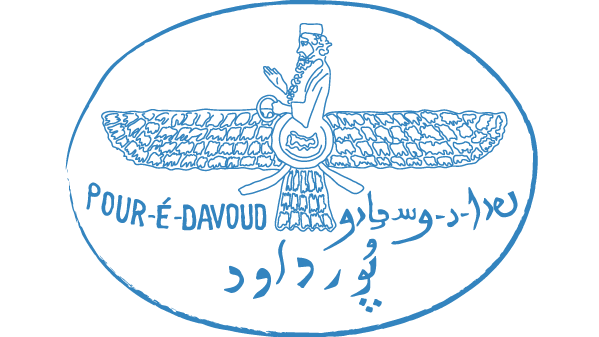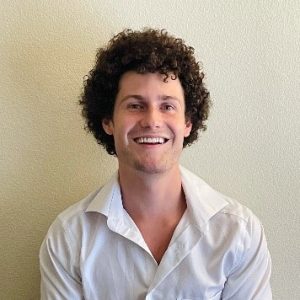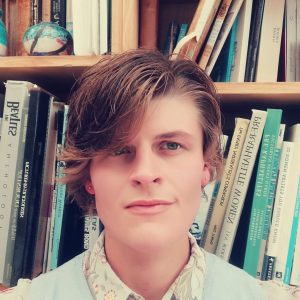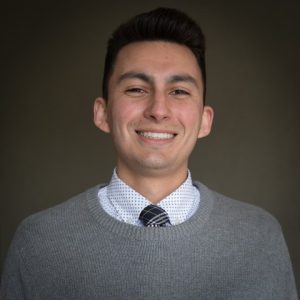
The UCLA Pourdavoud Center for the Study of the Iranian World is pleased to announce the awarding of the Morvarid Guiv Graduate Fellowship in Zoroastrian Studies. This fellowship was established at the Pourdavoud Center in 2018, thanks to a gift from the Trust of Morvarid Guiv. Named after the late Iranian philanthropist Morvarid Guiv, this fellowship endeavors to support graduate students working on all aspects of Zoroastrian studies at UCLA. The gift secured additional matching support from the UCLA Chancellor’s Centennial Scholars Match program.
In its fourth year, this fellowship was awarded to six successful graduate student applicants, whose works encompass different facets of Zoroastrian studies, that is, the Zoroastrian religion, its ancient history, languages, and scriptures. Each student will be awarded a Morvarid Guiv Graduate Fellowship stipend in the amount of $3,000, which shall be disbursed in $1,000 increments over the course of Fall Quarter 2023, Winter Quarter 2024, and Spring Quarter 2024.
Below are the brief biographies of each awardee.
 Hong Yu Chen
Hong Yu Chen
Hong Yu Chen is a fifth-year Ph.D. student in the Near Eastern Languages and Cultures Department at UCLA. He completed his Bachelor’s at The Johns Hopkins University in History and Near Eastern Studies in 2019 and completed his Master’s in Near Eastern Languages and Cultures in 2022 at UCLA. A student of a variety of ancient languages, from Old Persian to Egyptian Demotic, his research focuses on the Egypto-Iranian interactions in the ancient world, utilizing textual sources of the Achaemenid Period to describe and understand strategies of Iranian imperialism in North Africa, its visible impacts upon its conquered subjects, and Iranian culture’s long-lasting legacy upon peoples of both past and present.
 Ethan Friedland
Ethan Friedland
Ethan Friedland is a third year PhD student in Iranian Studies. He is primarily interested in studying religious developments in the Achaemenid Period (ca. 550–330 BCE), when Iranians had close proximity to, and hegemony over, a myriad of peoples in the ancient Middle East. He intends to explore how these interactions, and the pragmatic necessities of running an empire, impacted Iranian religions. Similarly, he is interested in studying the Achaemenid period as a regional and temporal catalysis, in which the religious traditions of the Middle East entered the Iranian world and emerged with significant changes. His current research examines the fluidity of divine concepts in the Avesta.
 Charlotte Howley
Charlotte Howley
Charlotte Howley is a second year PhD student in the Program of Iranian Studies at UCLA. She completed her BA in Literae Humaniores at the University of Oxford, where she first gained an interest in Achaemenid Persia, writing an Optional Thesis on the Elephantine Papyri, and learning both Old Persian and Imperial Aramaic over Zoom alongside her studies. She then completed an MSt in Oriental Studies, also at Oxford, co-supervised by Professors Peter Thonemann and Yuhan Vevaina. Her interests center on Gender, Sexuality, and Religion in the pre-Islamic Iranian court, links between Mesopotamian and Achaemenid religious and courtly traditions, and the religious and social roles of court eunuchs.
 Emma Petersen
Emma Petersen
Emma Petersen is an Iranian Studies PhD student in the Near Eastern Languages and Cultures Department at UCLA. Her research explores the cultural dynamics of the Achaemenid Persian Empire (ca. 550–323 BCE) within the context of the broader Afro-Eurasian world. She has a special interest in mobile objects and the “minor arts” of the empire, including seals, metalwares, and ceramics. While a graduate student at UCLA, she has held positions at the University of Chicago and the Getty Research Institute. Since 2017, Emma has been a Research Associate at the Institute for the Study of Ancient Cultures: West Asia and North Africa, where she specializes in the study of the uninscribed tablets of the Persepolis Fortification Archive. She is currently preparing her dissertation prospectus on the topic of the Achaemenid royal feast and its role in structuring the Achaemenid imperial paradigm.
 James Scherrer
James Scherrer
James Scherrer is a second year PhD student in the Department of Near Eastern Languages and Cultures, focusing on Iranian Studies. He earned a BA with a double major in History and Classics from the University of California, Santa Barbara (UCSB). His primary research interest is in Achaemenid borderlands, especially Persian relations with non-Persian peoples in both the western and eastern frontiers of the empire, in particular Ionia, Egypt, and Bactria-Sogdiana. These three regions formed the basis for his undergraduate history thesis, for which he received an Undergraduate Research and Creative Activities Grant from UCSB and was awarded the History Associates Board Prize for best undergraduate thesis by the UCSB History Department. Achaemenid Bactria especially and its position within the ancient Iranian world (seat of the Achaemenid crown-prince and birthplace of the Zoroastrian prophet Zarathustra) has been a major focus of his research.
 Alexander Youngstrom
Alexander Youngstrom
Alex Youngstrom is a second-year PhD student in the Department of Near Eastern Languages and Cultures at UCLA, where he studies the Hebrew Bible. He completed his MA in the Bible and the Ancient Near East at the Hebrew University of Jerusalem. His research interests include the reception of the Hebrew Bible in Second Temple Judaism, the Dead Sea Scrolls, and scribal culture.

